VICENZA, Italy - Three Soldiers from 3rd Medical Command (Deployment Support), based in Atlanta, Ga., conducted military medical exchanges with approximately 25 soldiers of the Mauritanian Medical Services in Nouakchott, Mauritania, Jan. 10-20.
Two weeklong sessions focused on medical evacuation techniques, and field sanitation and preventive medicine, said Lt. Col. Tim Doherty. The Mauritanian participants included physicians, nurses, planners and medics, he said.
Doherty and Master Sgt. Sheri Murphy began the exchange with a comprehensive overview of casualty evacuation, examining scenarios from a hypothetical point of injury to ferrying the injured to an established field facility. Both the Mauritanian and American teams presented their overview of operations for discussion, he said.
"I was really impressed by the representatives from Mauritania," said Doherty. "They were engaged, and they retained and sought to apply the information from day to day, incorporating discussion points from previous lectures."
The Mauritanians engaged their American guests in an open discussion of lessons learned from recent contingency operations, said Doherty. The 3rd MDSC Soldiers provided the Mauritanians with resource materials in both English and Arabic. Class sessions were facilitated by translators, he said.
Maj. Michael Fuller joined Doherty for presentations on field sanitation and preventative medicine. Fuller and Doherty conducted a series of open forum discussions and slide presentations to familiarize their Mauritanian peers with an oversight of the U.S. military approach to preventive medicine and field sanitation risk reduction strategies.
The bottom line of both endeavors is to ensure that soldiers remain as healthy as possible in a field environment, said Doherty. Again, the U.S. team was able to provide study materials in both English and Arabic for their hosts to use as a reference resource for further education and training.
"Theater security cooperation missions are one of the most important missions the U.S. Army accomplishes," said Doherty. "Working with the Mauritanian Army sharing techniques related to Army aero-medical evacuation and combat life saver will certainly improve the overall medical care the Mauritanian Army provides their injured soldiers and civilians."
Maj. Lee Clark of the U.S. Army Africa Command Surgeon's Office also participated in discussions with representatives of the Mauritanian Military's Medical Department to assess possibilities for future engagement opportunities.
"The Mauritanian physicians are eager to engage with the U.S. military. They have a unique medical system, in which the hospitals are military-run, but are open to the civilian population. They are eager to participate in our ophthalmology medical readiness training exercise program, since cataracts and eye pathology pose a major concern," Clark said.
This was the first medical engagement of its sort conducted in Mauritania by the U.S. Army Africa Command Surgeon's Office, he said.
"Events like this will lead to greater stability in the region and improved relationships with Mauritanian Army and citizens. It was my privilege to execute this TSC for U.S. Africa Command with the Mauritian Army Medical Officer and NCOs, and I look forward to conducting more in the future," said Doherty.
"They are also interested in a trauma-surgery traveling contact team visit focused toward their providers," Clark said.
Related Links:
Follow U.S. Army Africa on Twitter
Join the U.S. Army Africa conversation on Facebook
View U.S. Army Africa photos on Flickr

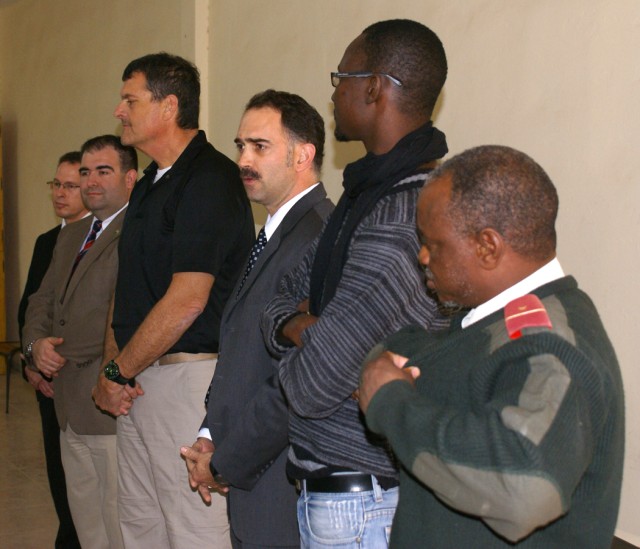
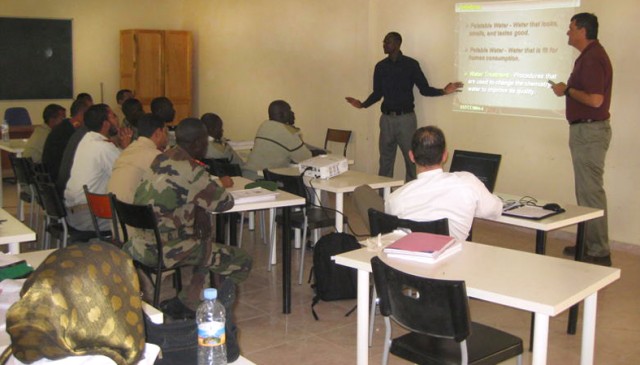
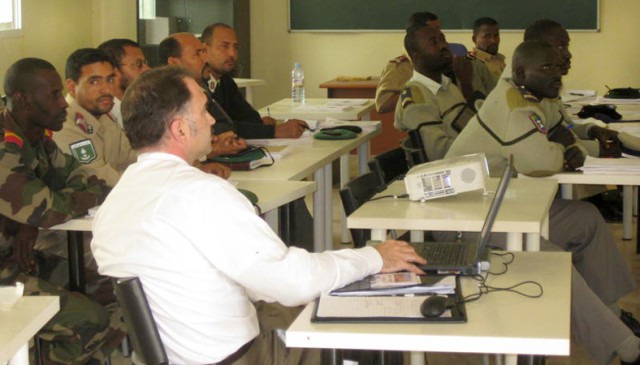
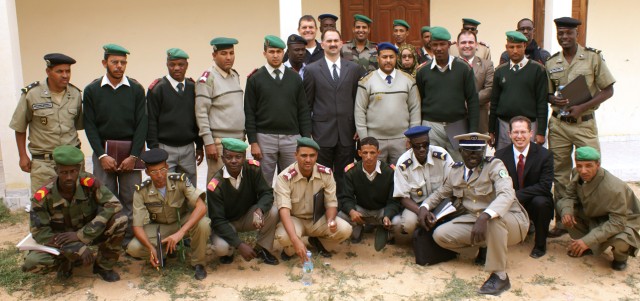

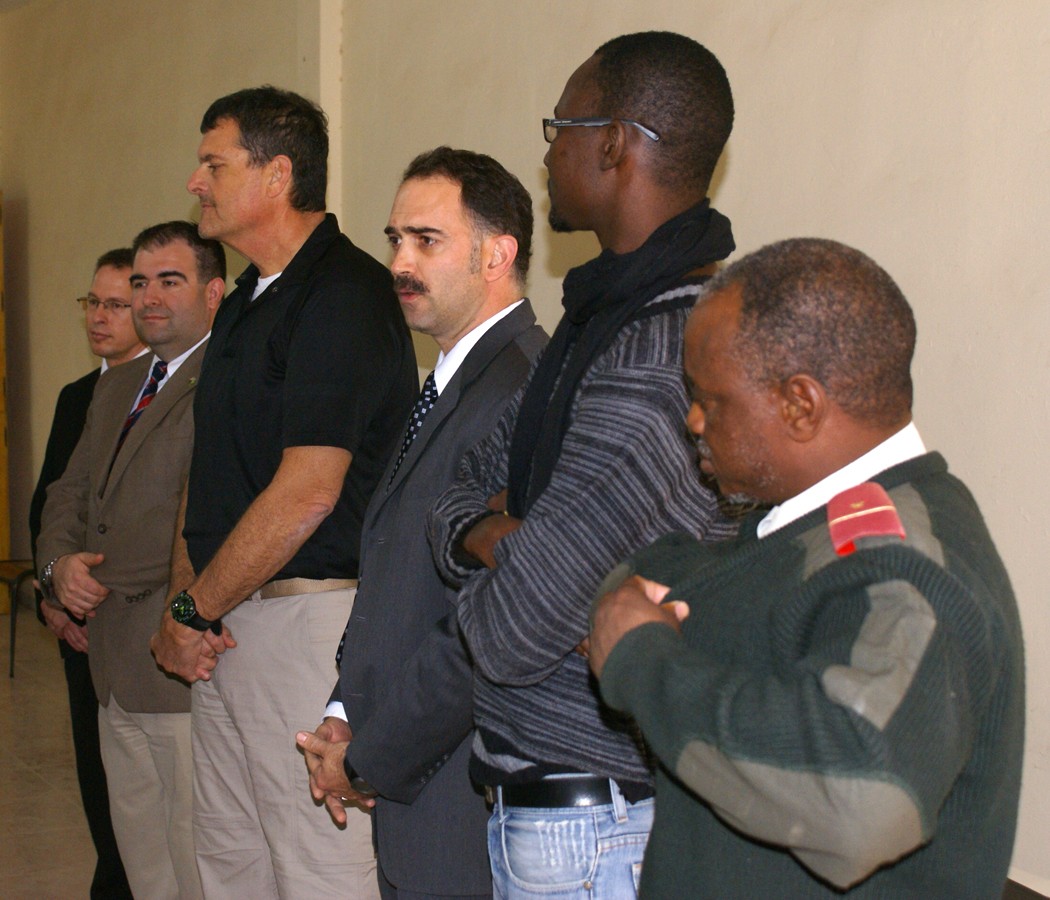
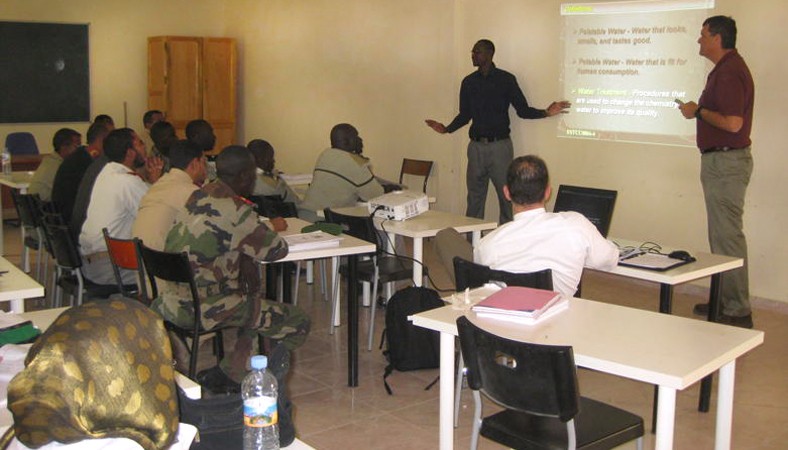
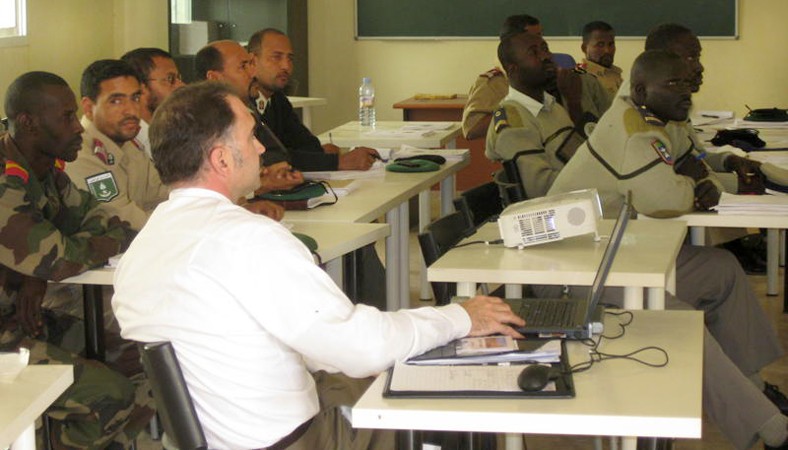
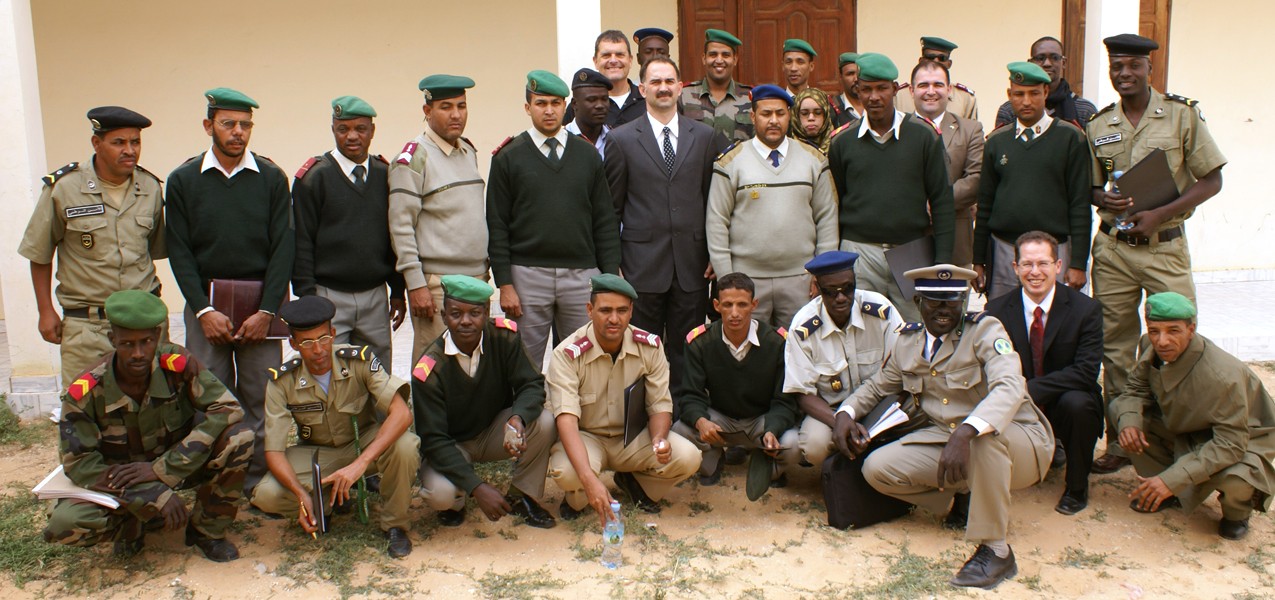
Social Sharing